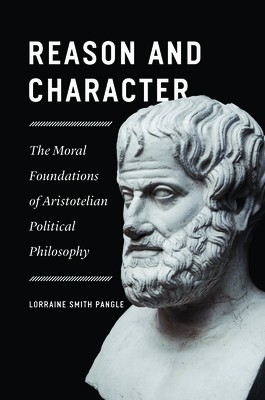
- We will send in 10–14 business days.
- Author: Lorraine Smith Pangle
- Publisher: University of Chicago Press
- ISBN-10: 0226833356
- ISBN-13: 9780226833354
- Format: 15.2 x 22.9 x 1.9 cm, softcover
- Language: English
- SAVE -10% with code: EXTRA
Reviews
Description
A novel interpretation of Aristotle's teachings on the relation between reason and moral virtue. What does it mean to live a good life or a happy life, and what part does reason play in the quest for fulfillment? Proceeding by means of a close and thematically selective commentary on Aristotle's Nicomachean Ethics, Pangle shows how Aristotle's arguments for virtue as the core of happiness and for reason as the guide to virtue emerge in dialectical response to Socrates's paradoxical claim that virtue is knowledge and vice is ignorance and as part of a politically complex project of giving guidance to lawgivers and ordinary citizens while offering spurs to deep theoretical reflection. Against Socrates, Aristotle insists that both virtue and vice are voluntary and that individuals are responsible for their characters, a stance that lends itself to a vigorous defense of moral responsibility. At the same time, Pangle shows, Aristotle elucidates the importance of unchosen concerns in shaping all that we do and the presence of some form of ignorance or subtle confusion in all moral failings. Thus the gap between his position and that of Socrates comes on close inspection to be much smaller than first appears, and his true teaching on the role of reason in shaping moral existence is far more complex. The book offers fresh interpretations of Aristotle's teaching on the relation of passions to judgments, on what it means to choose virtue for its own sake, on the way reason finds the mean, especially in justice, and on the crucial intellectual virtue of phronesis or active wisdom and its relation to theoretical wisdom. Offering answers to longstanding debates over the status of reason and the meaning of happiness in the Nicomachean Ethics, this book will kindle in readers a new appreciation for Aristotle's lessons on how to make the most out of life, as individuals and in society.EXTRA 10 % discount with code: EXTRA
The promotion ends in 19d.13:38:19
The discount code is valid when purchasing from 10 €. Discounts do not stack.
- Author: Lorraine Smith Pangle
- Publisher: University of Chicago Press
- ISBN-10: 0226833356
- ISBN-13: 9780226833354
- Format: 15.2 x 22.9 x 1.9 cm, softcover
- Language: English English


Reviews